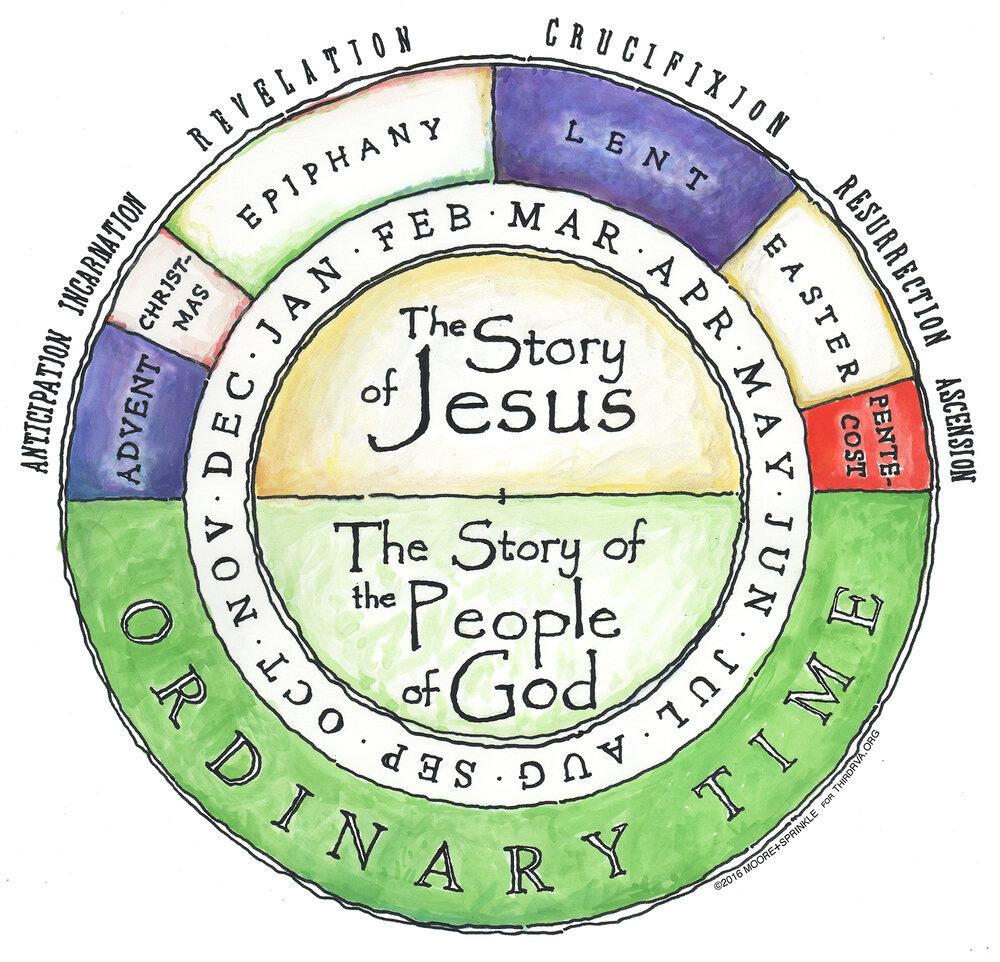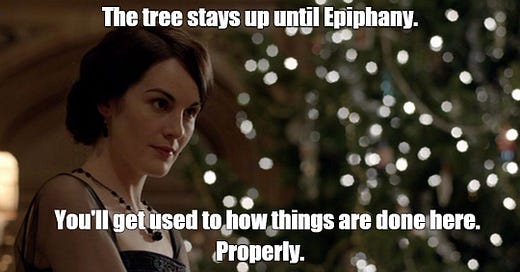So I have a secret theory in the church world, which is that no one really knows what the season of Epiphany is. Growing up, I had a vague idea that it had something to do with the wise men? Maybe Jesus’ baptism? It was simply a strange, preacherly word that would occasionally come up in a sermon after Christmas. At the time I had no concerns about the church calendar, or how many days Christmas ought to be properly celebrated (for those in the know, it’s 12).
Of course down the road I went to seminary and encountered people that like to be liturgically correct, most of them in Duke’s Anglican and Episcopal House of Studies. I used to go to morning prayer with them on Thursdays, when they served communion, and I fell in love with the service.
Of course, they were sometimes kind of fussy about doing things proper, but as someone raised in an evangelical United Methodist Church, it was revelatory: church can be like this? At their side, I learned the beauty of the Book of Common Prayer; I learned the wisdom of praying poetry that thousands upon thousands have prayed before you; but I also picked up a lot about how the church year is the scaffolding upon which Christians build together a common life. The rhythms of Advent to Christmas, and especially Lent into Easter, taught me the value of different spiritual seasons of the church.

But I must admit, Epiphany escaped me, probably because it came around Christmas break and beginning of semester, times when I was either very, very lazy, or very, very busy. But it’s a great little season, tucked in between the pomp and circumstance of Christmas, and the dour and difficult pilgrimage of Lent.
The word epiphany means a manifestation, a showing forth, an unknown thing that has become suddenly known. An epiphany for a scientist or thinker is that moment when the solution, previously unknown, somehow comes into being in their mind. In a similar way, the season of Epiphany is a season of revelation. It’s a season of lights, of stars shown to strange men in far off places; it’s a season to build cities that will shine upon hills; it’s a season when questions are answered and knots come untied.
Different church traditions do focus this season on different parts of Jesus’ life, which has created some of our confusion: some celebrate the visit of the magi on the day of Epiphany, January 6, which has been the focus in the Western churches; some focus on the glory of Christ revealed in his baptism; and others celebrate Epiphany as a part of Transfiguration Sunday, when Jesus communes in glory with Moses, Elijah, and his heavenly Father. But in whatever part of the story we emphasize, the church in Epiphany celebrates that God has been made known in Christ; and that we too are called to make him known.
Barb Wyman (quoting Cardinal John Henry Newman) writes,
Epiphany Season is a happy time for us to keep the bright lights about our homes, to remember the miraculous birth and the guiding star.
Newman invites us to draw strength for trials and battles to come. We should take his conclusion to heart: “ . . . let us thankfully cherish all seasons of peace and joy which are vouchsafed us here below . . . Trial is our portion here . . . . Still God mercifully does grant a respite now and then. . . . When then Christ gives us what is pleasant, let us take it as a refreshment by the way, that we may, when God calls, go in the strength of that . . . [into the] forty days and forty nights. . . . Let us rejoice in Epiphany with trembling, that at Septuagesima we may go into the vineyard with the labourers with cheerfulness. . . .”
I like that notion: Epiphany as a respite, a little season of light in the darker, colder time of the year. It’s a time to shine brightly, and make the perhaps louder proclamation of Christmas become a reality in our world. I think this year, in this time, we need a break. We need a time to bask in front of the fire of Christ, and prepare ourselves for the days to come.
I encourage you to celebrate Epiphany somehow this year. In my family, we are lighting a Christ candle on our table during meals, to remember that the light still, two thousand years later, is shining in the darkness. And the darkness has not overcome it!
So I also wanted to share a little poem I wrote to make fun of people that are overly fussy about the liturgical year, which is saying something for a guy who just wrote a blog post about Epiphany! But I share it with you just for a bit of fun. Hope your 2021 is off to a good start.
The Season of Epiphany
Admit it: the expired eggnog has lost its charm
The gingerbread houses have all come to harm
The tree looms in the background, a beckoning chore
The neighbor’s Nutcracker sings on, an insufferable bore
You’ve forgotten what you’ve gotten and what you gave out
The cookies are rotten; your jelly-belly’s gone stout
Christ may be sleeping in his humble hay throne
But Santa’s gone fishing and is best left alone
The dour scowl, insisting “Christmas lasts twelve days!”
The New Year winks otherwise, her face much less grave
Reverend, tend to your calendar but don’t peddle tricks:
What party have you thrown, good sir, on January Six?





Thanks Cambron. Poem is great!
Enjoyed this Alum.